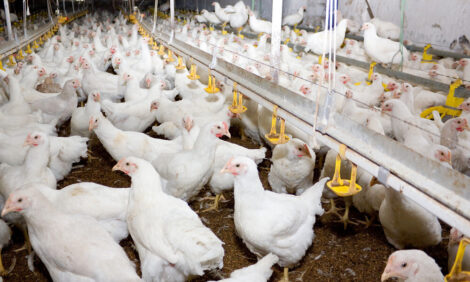



Feed Treatment Set to Help Control AI
GLOBAL - Studies underway at Alabama’s Auburn University in the USA look set to provide layer operations with a critical control tool in the battle against Avian Influenza.With 46 million chickens and turkeys already lost to this year’s bird flu outbreak, timing is critical, as US Poultry and Egg Association Vice President of Research Programs Dr Glisson explains.
“The US egg industry has already been severely hit and with winter migration now underway we are doing everything we can to protect birds and businesses. Strict biosecurity is the most fundamental feature of successful control of avian influenza.”

US Poultry and Egg Association is jointly funding the research with its commercial partner Anitox, a specialist in feed pathogen control. Anitox Technical Director and poultry veterinarian Dr Gino Lorenzoni supports Glisson’s view that biosecurity is key to protecting global egg production.
“All comprehensive layer biosecurity programs consider feed as a possible vector. However, despite the most rigorous attempts to ensure feed is stored and transported safely, there has remained a significant treat of AI contamination by migrating wild birds and flies – both known to be active carriers.”
Work at Auburn University commissioned by Dr Lorenzoni and his team will, it’s hoped, provide layer producers and the wider poultry industry with a critical control tool capable of protecting feed against recontamination for up to 21 days post treatment. That’s long enough to ensure it’s free of the AI virus at the point of consumption.
“Initial results are positive. We have substantive data to confirm that the core technology in Termin-8® is highly effective against the virus in the laboratory. This project is the next substantial piece of the jigsaw. We’ve written a protocol designed to prove conditions that will offer maximum efficacy and residual protection in feed. We’re expecting the results within weeks.”
“Our commercial teams in the US, Europe and Asia have been supporting layer operations for some time, working to ensure feed is a critical control point in the battle against Salmonella and dangerously high loads of bacterial contamination that can lead to conditions such as enteritis. With most layers and turkeys fed mash feed, which doesn’t benefit from any form of heat treatment, microbial contamination in feed ingredients has a direct route through to human food production.
“It is well within our capability to extend the protection we put in place to control Salmonella, for example, to cover Avian Influenza. Feed isn’t the only vector for viral transmission, but with each avenue we close down, the risk of contracting this devastating condition decreases.”
Having worked in the poultry industry globally for many years, Dr Lorenzoni is well aware of the importance of his work. “We cannot underestimate the impact on producers, veterinarians and staff in affected layer operations. It is devastating to see mortality spiking within hours. The scale of commercial layer operations means disposal is a protracted process, cleaning of sheds takes time, and the period between restocking and point of lay brings its own financial pressures. Every control tool, therefore, is vital in curtailing this virus.”








